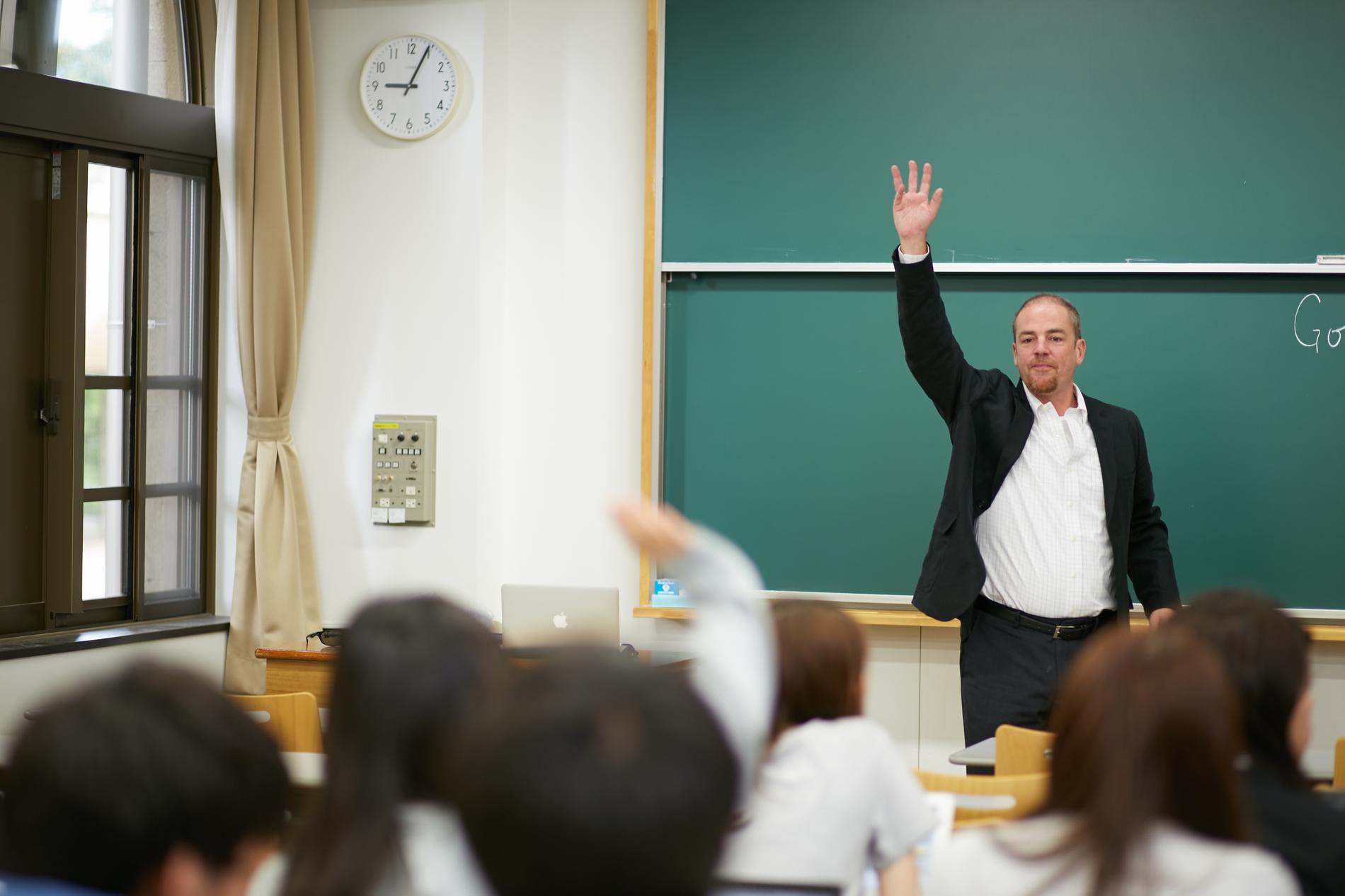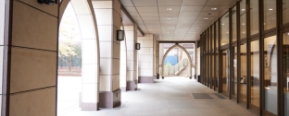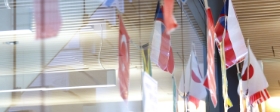
FAQ
Overview of the ISS
Why is the Faculty named "the Faculty of International Social Sciences"?
The name "Faculty of International Social Sciences" (ISS) embodies the following aspects:
(1) It succinctly captures our focus: analyzing international society using the methods of the social sciences.
(2) It signifies our commitment to English-language education, vital for fostering the development of people who can take an active role in international society.
(3) Finally, "social sciences" is an internationally recognized term for this group of disciplines.
In Japanese, the faculty is called 国際社会科学部.
Q. What disciplines are included in the social sciences? How can the study of social sciences be put to use in the future?
"Social sciences" is an umbrella term for any discipline that conducts scientific and systematic research into human behavior. Examples include sociology, political science, economics, management, law, and social psychology. At ISS, five fields directly related to business are taught: law, economics, management, area studies, and sociology.
The social sciences adopt a common approach to problems: analyze the problem logically, form a hypothesis, then test the hypothesis. This approach has proved enormously useful in understanding and analyzing complex problems and devising solutions to them. Through the study of the social sciences (using logical thinking, data analysis, and other tools.), students develop the ability to identify and solve problems. This skill can be put to work in confronting a wide range of problems.
Q. How does the ISS differ from the Department of English Language and Cultures in the Faculty of Letters and from Faculties of International Studies of other universities?
While Gakushuin University's Department of English Language and Cultures in the Faculty of Letters, and International Studies faculties at other universities emphasize English-language education and cultural studies, ISS focuses on teaching social sciences in English in parallel with teaching the English language itself.
At ISS, students develop their ability to communicate in international society through English-language education while cultivating the ability to discover and solve problems through study of the social sciences. This parallel approach instills skill sets to play vital roles on the international business scene.
Entrance Examinations
Q. When students apply to take general exams (elective exams), which outside English-language qualifications and proficiency tests are used the most? Are there advantages and disadvantages to outside English-language qualifications and proficiency tests?
The most commonly used English-language proficiency test is Eiken. No outside English-language qualification or proficiency test is preferred over the others, so please submit your results for the test on which you earned the highest score.
Q. Do I need to have experience in overseas study (study abroad) to enter ISS?
No. Only about 30% of ISS students have returned to Japan after living abroad or have studied abroad up to the high-school level. The majority of students at ISS have never lived abroad.
Q. Can I enroll even if I fail public recommendation/AO entrance exams?
Yes, you can. Please apply for the general entrance exam during the application period.
Overseas Study
Q. What overseas study options are available at ISS?
At ISS, students are not required to participate in predetermined study programs. Instead, each student chooses the country and location of study, prepares an individual overseas study plan, and submits it to the ISS for approval. If the plan satisfies certain criteria specified by the faculty, the student can pursue overseas studies almost anywhere in the world. For details, please check the programs listed on the Overseas Study page.
Q. I am a little nervous about planning and arranging my own overseas study. Do you provide any support?
First-year students attend Study Abroad I. This required course provides all students with a basic grounding in overseas studies and explains approaches to planning them.
Support outside the classroom is available as well. The Study Abroad Consulting Office is open twice a week, so students can seek advice from dedicated staff (reservations are required). Students can also use overseas-study agents for support when traveling to their study location. The Gakushuin University International Centre supports students participating in exchange programs with our partner universities. Short-stay overseas study programs are also offered during the spring and summer break periods; interested students can apply through the ISS.
Curriculum
Q. I do not feel confident in my English ability and I'm not sure I can keep up with classes. How much English-language proficiency do I need to enroll?
The typical English-language ability of a high-school graduate is fine. Our curriculum focuses on improving your English, including six English classes per week in the first year, so you do not need to be accomplished in English when you enroll. All you really need is a desire to play an active role in international society and a desire to improve your English proficiency.
Q. Can I study languages other than English?
Yes. Gakushuin University offers classes in German, French, Chinese, Russian, Spanish, Italian, Korean, Arabic and Japanese (only for those whose mother tongue is not Japanese). About 30% of our first-year students study one of these second languages.
Q. What proportion of classes are taught in small groups?
About 15 subjects are taught to first-year students at ISS. Of these, seven are taught in small groups of about 20. One subject is taught in a group of about 50, and the remaining seven subjects are taught to groups of 100 to 200 students.
Q. Of the five social sciences fields taught at ISS, do I have to choose only one?
No. You are free to choose only one or study any number and combination of social sciences at ISS.
Q. Do I have to study all of the five social sciences fields offered at ISS?
As long as you satisfy the requirement in the study regulations for the number of credits in social-sciences subjects, you do not have to study all five fields. However, many students spread their academic efforts across several fields to obtain a broad-based education in the social sciences. Also, you are not required to carry the same course load in each field. You can choose to take more classes in fields that especially interest you, and deepen your understanding by attending related seminars.
Support for Student Living
Q. What kinds of scholarships are available?
Scholarships can be broadly divided into scholarships for tuition and scholarships for overseas study (exchange study). Some are provided as grants and others as loans. For details, please view the page for each scholarship program.
|
Scholarships for tuition
|
|
|
Scholarships for overseas study |
Scholarships and other programs for reduction and exemption of tuition |
Q. I live outside the Kanto area. Do you have services to put me in touch with dormitories and other accommodations?
Gakushuin Shinshinkai provides these services. Please see details here.
Job Hunting and Careers
Q. What qualifications can I earn?
Junior High School Teaching License Type I (Social Studies) and Senior High School Teaching License Type I (Civics) qualifications can be acquired at the ISS.
Other qualifications available include curator and librarian credentials (students can study courses available at Gakushuin Women's College for credit). Click here for a list of qualification acquisition support programs.
Q. How many students pursue teaching licenses?
Typically, two or three students aim to earn teaching licenses each year.
Q. What career support do you offer?
The Career Centre has prepared a number of support programs. The Centre makes career education "an essential part of education from your first year of enrollment to graduation." Support is available throughout your studies at Gakushuin University.
The Centre offers special approaches to group guidance and individual consultation, including the Career Advancement Seminar for new students, the Interview Preparedness Seminar ("Mentai") and "ABCs of Job Searching" tutorials. These programs are a key reason for Gakushuin University's high job placement rate.
The Career Centre provides extensive support, integral to education from the first year. This includes group and individual guidance, seminars on career advancement, interview preparation, and job search fundamentals. These programs contribute to our high job placement rate.
Q. What career paths are available after graduating from ISS?
You can check out a number of case studies posted on our Career page.
Our graduates often pursue careers in trading, consulting, IT, finance, and international departments of various companies. The ISS degree, a Bachelor of Social Sciences, is internationally recognized, paving the way for graduate studies and opportunities in international organizations or MBAs.
Additional Information
Q. Does ISS offer pre-enrollment classes or guidance?
Post-admission, ISS provides Pre-enrollment Guidance and a special class on Mathematics in the Social Sciences. These prepare students for university life and the academic requirements of social sciences.
Details will be provided in documents mailed to successful applicants.
Q. What items do I need to attend ISS?
Submission of class assignments, distribution of syllabuses and so on are handled online, so each student will need one notebook computer. Before purchasing your computer, please refer to the recommended specifications during Pre-enrollment Guidance. Many students purchase computers in the ¥100,000-150,000 range.

 Japanese
Japanese

 Contact Us
Contact Us